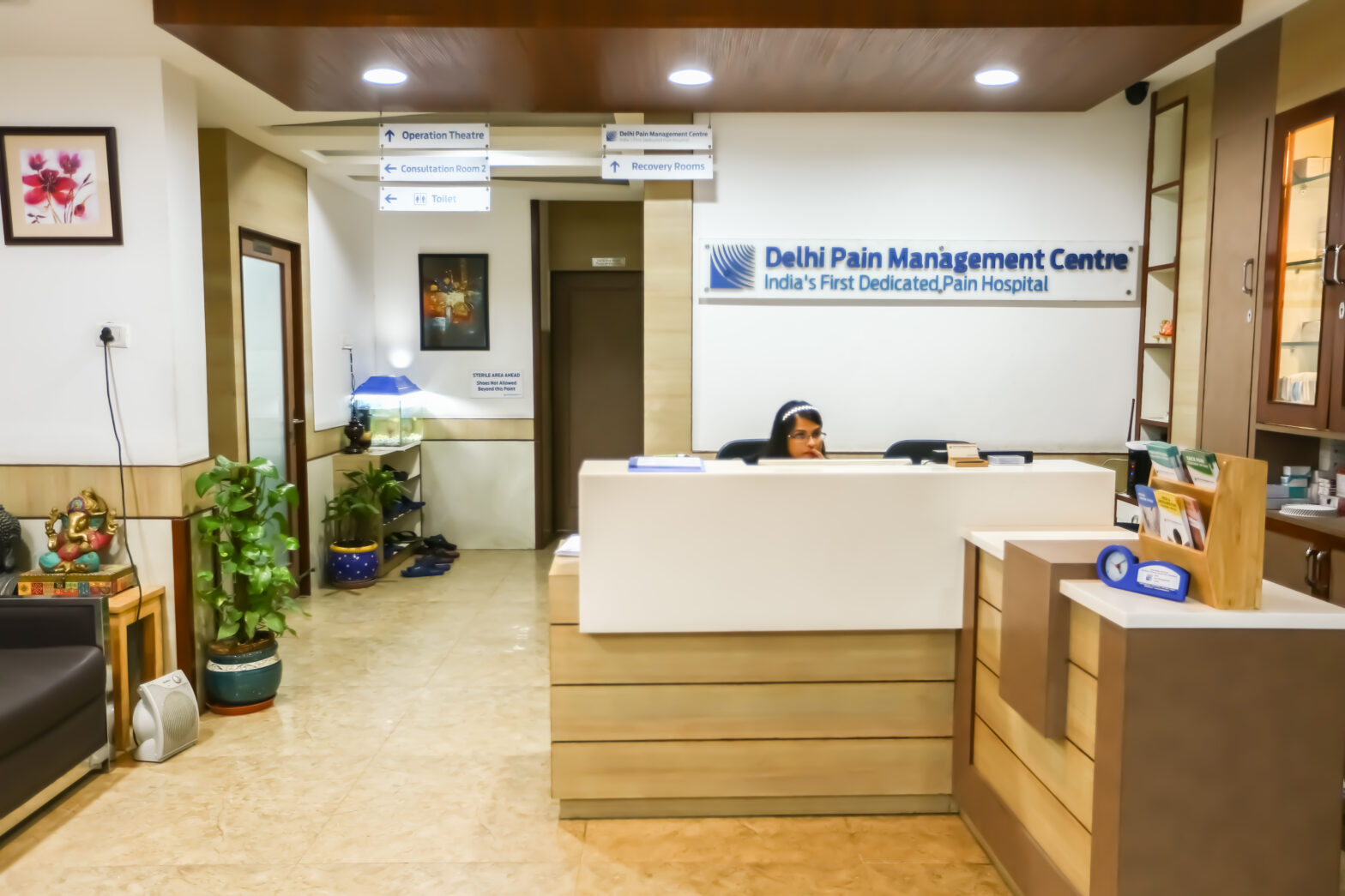
Sports Injuries
Sports Injuries
Sports injuries refers to a broad category of injuries in various parts of the body, which can be caused due to strenuous activities, such as sports. There are certain parts of the body that are more prone to damage from sports injuries. Below are the top 8 most common types of sports injuries. The top three categories (Runner’s Knee, Shoulder Injury, and Ankle Sprain) comprise more than 80% of all sports injuries.
Runner’s Knee:
Runner’s knee is the most common type of sports injury. The problem happens most commonly to runners, cyclists, swimmers, as well as people who practice aerobics, play football, basketball and volleyball. Overuse of the knee leads to irritation of the tendon below the knee-cap which results in this problem.
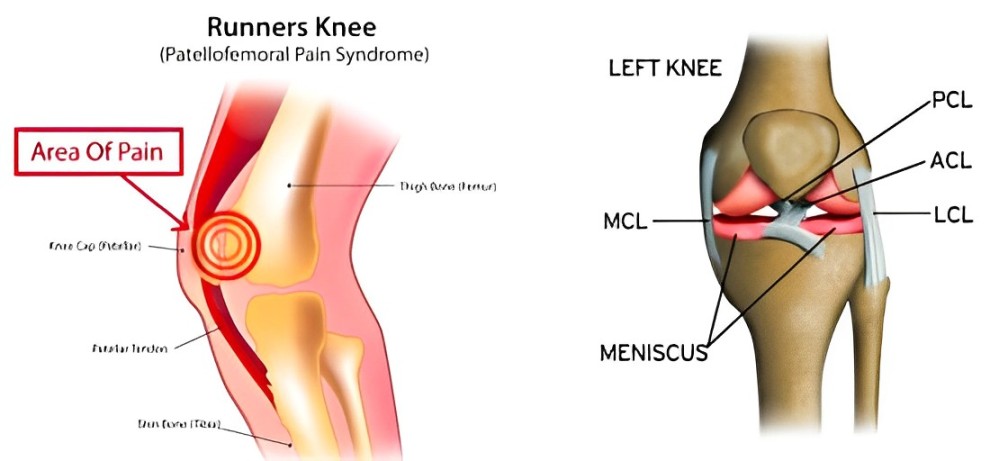
- Knee Ligament Injuries (ACL Tear/MCL Tear/PCL Tear/Meniscus Tear): Knee injuries can be the result of getting hit on the knee, falling down, or landing on a flexed knee. These are most common to footballers. These typically involve the ligaments that hold two of the bones of the knee the anterior cruciate ligament (ACL), the medial cruciate ligament (MCL), or the posterior cruciate ligament (PCL).
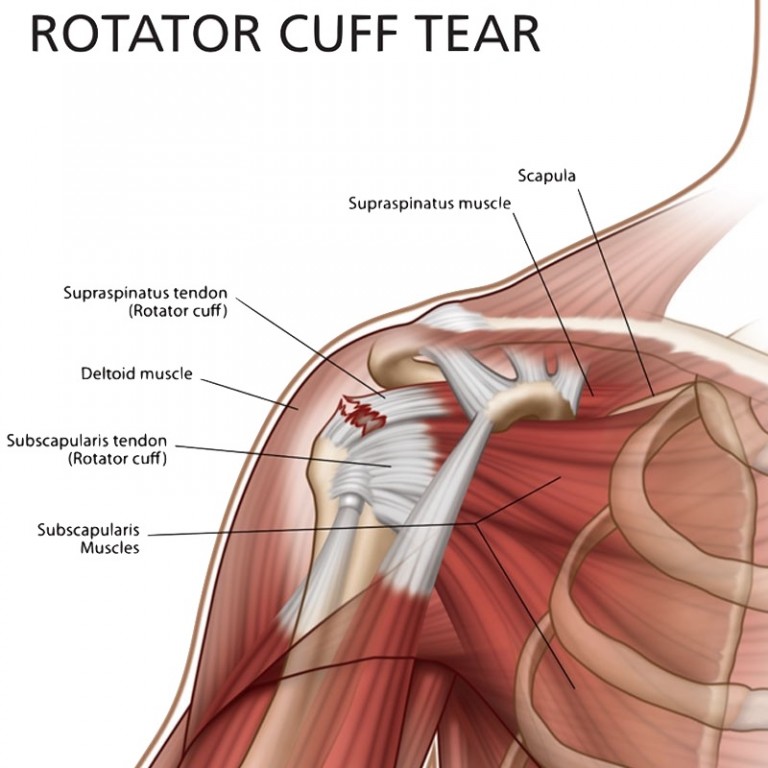
Shoulder Injury (Rotator Cuff Tear):
These injuries occur mostly during tennis, swimming, and voleyball. The chief cause of these problems is the overuse of the shoulder, which loosens the rotator cuff (a group of tendons and muscles around the shoulder).
Ankle Sprain:
Ankle sprains are common to any activity that involves jumping, running or turning quickly (e.g., playing football, basketball etc). Such motion can lead to twisting of the ankle and possible tearing of a tendon/ligament.
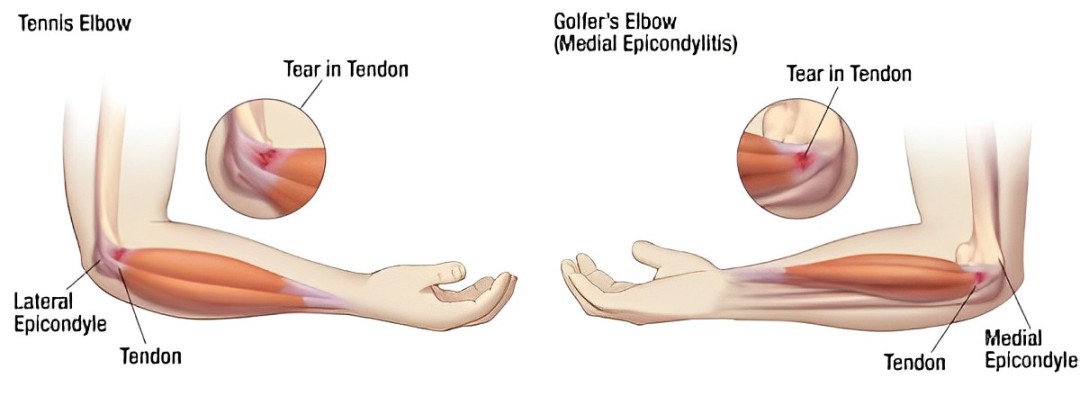
- Tennis/Golfer’s Elbow: Tennis Elbow involves tendon degeneration in the elbow due to repeated backhand strokes common to tennis. This condition leads to oain on the outside of the elbow. Golfers Elbow impacts the inside of the elbow, due to the inflmaation of the muscles responsible for forearm-flexing.
- Shin Splints: Shin Splints refers to pain on the inside of shinbone caused by inflammation of the surrounding muscles. These occur mostly in cases of inactive people who start working out and increase their intensity too fast.
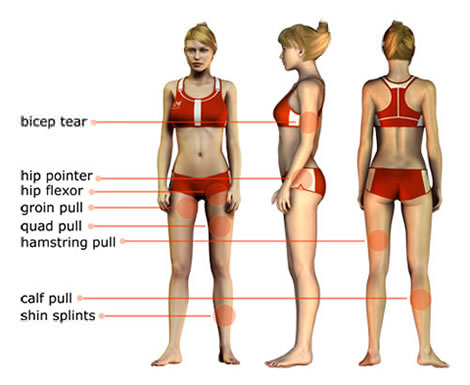
Groin Strain:
This refers to a strain the adductor muscles, situated in the upper thigh which help to pull the legs together and causes sharp pain and swelling on the inside of the thigh. This usually happens when one changes directions suddenly while running.
- Hamstring Strain: The hamstrings are the muscles behind your thighs. Hamstring strains most commonly occur due to inadequate warming up or excessive fatigue.
Prevention of Sports Injuries
- One of the easiest, yet most important prevention technique for sport injuries is to choose the correct shoes and insoles, and keep replacing them regularly as they get worn out.
- Running on a softer surface like an indoor track rather than the road or pavement can also prevent a number of injuries.
- To prevent shoulder injuries, it is most important to strengthen your muscles through weight training before getting involved in active sports.
- Always stretch properly before and after exervise, and do not work out when you are weak or fatigued.
- Never resume your sports activities until your injury is fully healed. Restarting activiity too soon can lead to chronic issues.
Treatment
Treatment Of Sports Injuries
- Medicines/Pharmacotherapy: One of the easiest techniques for pain control is using conservative care (e.g., resting the impacted part, using hot/cold packs) along with medicines, such as nonsteroidal anti-inflammatory drugs (NSAIDs) and adding a neuropathic agent in case of chronification of pain.
Braces:
Depending on the site of injury, different braces (e.g., thigh brace, elbow brace, arch brace, wrist brace, ankle brace, or knee brace) can be used to restrict the motion of the impacted part, control pain and speed up the recovery process.
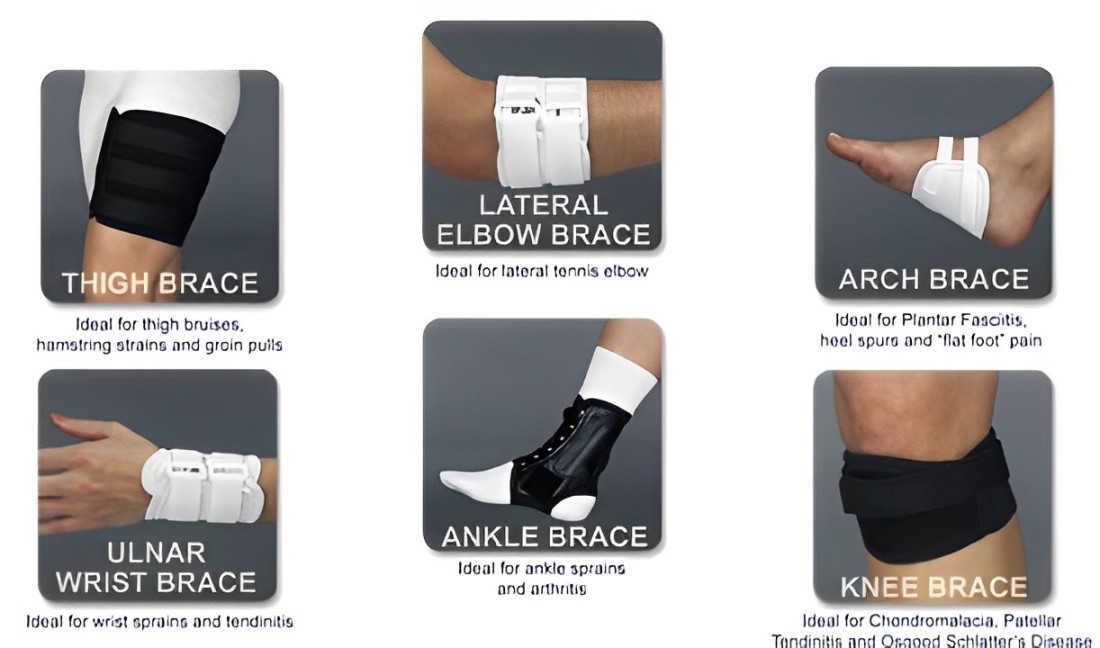
Available Treatments
Sports Injuries Treatment Options Available At DPMC

At DPMC, we provide the best and latest non- surgical interventions to treat pain due to sports injuries
- Medication/Supporting braces
- Injections
- Platelet Rich Plasma Therapy
- Physiotherapy
Book An Appointment Now!
You can also book an appointment over phone by calling us on 011-39595696 or

